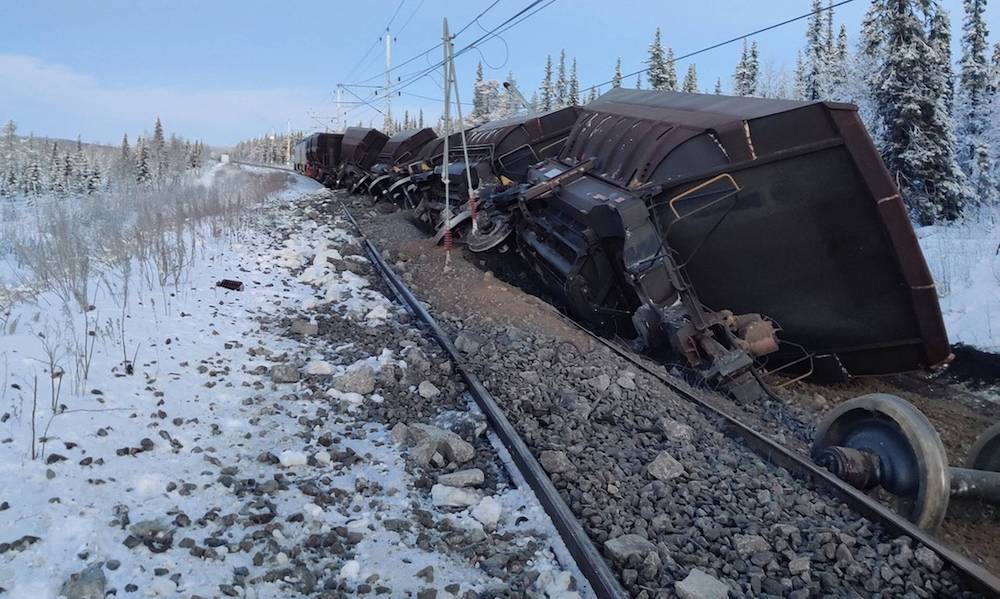A key rail link in Arctic Sweden is closed after a derailment
Traffic on part of the Iron Ore Line will be stopped for at least a week while work is carried out to repair the damage after 38 wagons loaded with iron ore tipped over.

One of Sweden’s largest mining firms says the derailment on Sunday of 38 cargo wagons carrying iron ore that is expected to halt traffic on a 100-kilometer stretch of a crucial transport corridor in the northern part of that country underscores the need for a second track there.
No one was injured in the accident and no cause has been identified as to why some of the train’s 68 wagons, each loaded with more than tons of iron ore, derailed and landed on their sides on their way from the LKAB mine at Gällivare to the port of Narvik, Norway.
However, some 800 meters of track in a roadless area between Gällivare and the town of Kiruna will need replacing at an estimated cost of 60 million kronor (about $7 million), according to LKAB.
The repairs are expected to take at least a week, but they cannot begin until investigators complete their work and the derailed wagons are removed.
[Northern mines could provide most of the EU’s strategic metals]
Until repairs are complete, the affected section of the 500-kilometer Iron Ore Line, a single-track railway connecting the Swedish port of Luleå, with Narvik, will be closed to passenger as well as freight traffic.
Jan Lundgren, the head of logistics for LKAB Malmtrafik, the firm’s transport subsidiary, said in a statement that LKAB had been pushing for a second track to be built to expand the line’s capacity, but had a second line already been in place, disruptions on the line would have been limited.
“This shows yet again how vulnerable our supply chain is. We need a second track now.”
[Sweden greenlights a railway line in its emerging high-tech North]
The accident occurred on curve on a part of a 300-kilometer section of the railway that last year had been identified as likely to experience a derailment after it was determined that the steel used to make the rails had an “abnormally high” risk of fracturing.
As many as 24 LKAB ore trains travel to Narvik and Luleå each day on the Iron Ore Railaway, making it one of Sweden’s busiest. During the closure, LKAB will be able to continue to ship ore from its Kiruna mine to Narvik for export, while ore from the Gällivare mine can be sent to Luleå for use in steel mills there.
However, LKAB said much of the ore currently being mined in Gällivare was due to be sent to Narvik. The company calculates that an extended closure of the affected section of railway that delays shipments of the 30 million tons of ore it exports each year will cost the company in the neighborhood of 3 million kronor an hour.